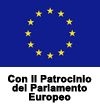LOTTA ALLE FRODI: IL PUNTO DI VISTA DELLA CORTE DEI CONTI EUROPEA
Autore: Dott.ssa Laura De Rose, Vice Direttore Foroeuropa
L’articolo che segue riassume i contenuti principali della Relazione Speciale della Corte dei Conti Europea su “Lotta contro le frodi relative alla spesa dell’Unione Europea: necessitá di agire”. Questa relazione è stata adottata il 14 novembre 2018. Il sommario si concentra soprattutto sui risultati dell’audit e sulle raccomandazioni della Corte, quali rivolte direttamente alla Commissione Europea. Di notevole interesse sono anche le proposte della Corte relative alla cooperazione fra l’OLAF e la Procura Europea, al fine di evitare doppio lavoro e di sfruttare le sinergie ove possibile.
La Relazione è anche disponibile in italiano e può essere scaricata dal sito della Corte:
--------------------------------
SPECIAL REPORT "FIGHTING FRAUD IN EU SPENDING: ACTION NEEDED” BY THE EUROPEAN COURT OF AUDITORS (ECA)
The Report, which was adopted by the ECA on 14 November 2018, outlines the results of an audit carried out by the ECA with a view to assessing whether the Commission is properly managing the risk of fraud in EU spending. Amongst others, the ECA has examined whether i) the Commission focuses sufficiently on preventing fraud; ii) OLAF’s financial and judicial recommendations lead to prosecution and recovery, and iii) the European Public Prosecutor’s Office (EPPO) is likely to address the weaknesses identified by the ECA in the current set up of combating fraud in EU spending.
The EU spending areas considered for the audit were: agriculture, cohesion, research, and external actions.
Definitions of ‘fraud’ and ‘irregularity’
The legal definition of fraud affecting the Union's financial interests is set out under the Directive of the European Parliament and of the Council of 5 July 2017 on the fight against fraud to the Union's financial interests by means of criminal law (the PIF Directive). Specifically, according to Article 3 of the PIF Directive, the following shall be regarded as fraud affecting the Union's financial interests:
(a) in respect of non-procurement-related expenditure, any act or omission relating to:
(i) the use or presentation of false, incorrect or incomplete statements or documents, which has as its effect the misappropriation or wrongful retention of funds or assets from the Union budget or budgets managed by the Union, or on its behalf;
(ii) non-disclosure of information in violation of a specific obligation, with the same effect; or
(iii) the misapplication of such funds or assets for purposes other than those for which they were originally granted;
(b) in respect of procurement-related expenditure, at least when committed in order to make an unlawful gain for the perpetrator or another by causing a loss to the Union's financial interests, any act or omission relating to:
(i) the use or presentation of false, incorrect or incomplete statements or documents, which has as its effect the misappropriation or wrongful retention of funds or assets from the Union budget or budgets managed by the Union, or on its behalf;
(ii) non-disclosure of information in violation of a specific obligation, with the same effect; or
(iii) the misapplication of such funds or assets for purposes other than those for which they were originally granted, which damages the Union's financial interests”.
Irregularity is a broader concept than fraud. It is defined as any infringement of the law, which has, or would have, the effect of prejudicing the EU budget. If such breach of law has been committed intentionally, then it is fraud. Hence, what differentiates fraud from other irregularities is malicious intent on the part of the perpetrator.
Main audit findings can be summarised as follows:
- The Commission lacks comprehensive information on the scale,nature and causes of fraud. Its official statistics on detected fraud are not complete and it has so far not carried out any assessment of undetected fraud. Some information is available on fraud patterns and schemes used in different sectors. There is no detailed analysis to identify what causes some recipients of EU money to behave fraudulently. This lack of information reduces the practical value of the Commission’s strategic plans.
- OLAF investigations result in the prosecution of suspected fraudsters in fewer than half of cases, and resulted in recovery of less than a third of the funds.
- The establishment of the EPPO (to date, 22 Member States have joined it) is a step in the right direction, but the current regulation poses several risks. Probably the most serious of these concerns the detection and investigation, which will be carried out primarily by the Member States’ investigators under the authority of the EPPO. The regulation does not put in place any mechanism enabling the EPPO (or any other EU body) to urge Member State authorities to allocate resources to the pro-active work necessary for the investigation of fraud in EU spending, or to the cases handled by the delegated prosecutors. Another risk is that the extensive internal consultation and translation needed for the EPPO chambers’ work may end up taking too long for criminal procedures, where time is very often the most limited resource.
ECA’s recommendations
a. More drive and leadership is needed in the EU to take real action against fraud in EU spending. To this purpose, the Commission should step up, in cooperation with the Member States, its fight against fraud in EU spending.
b. A robust fraud reporting system should be put in place, providing information on the scale, nature and root causes of fraud.
c. Strategic fraud risk management and fraud prevention should be clearly referred to in the portfolio of one Commissioner, so as to achieve better coordination in tackling fraud; further, a new comprehensive anti-fraud strategy should be adopted based on a comprehensive analysis of fraud risks.
d. Fraud prevention activities should be enhanced. For instance, the Commission shouldensure that the competent General Directorates use the early detection and exclusion system in direct and indirect management and call on the Member States to identify and flag fraudulent economic operators and the private individuals linked to them.
e. OLAF’s role and responsibilities in combatting fraud in EU spending should be reconsidered inlight of the establishment of the EPPO. In particular, the Commission should propose to the European Parliament and the Council measures to give OLAF a strategic and oversight role in EU anti-fraud action. For instance, OLAF should be responsible for i) leading the design, and monitoring and supervising the implementation of the Commission’s anti-fraud policy; and ii) co-ordinating and monitoring anti-fraud activities in the Member States.
The Report may be accessed by clicking on this link:
https://www.eca.europa.eu/Lists/ECADocuments/SR19_01/SR_FRAUD_RISKS_EN.pdf
The Report is available in all the EU official languages.


